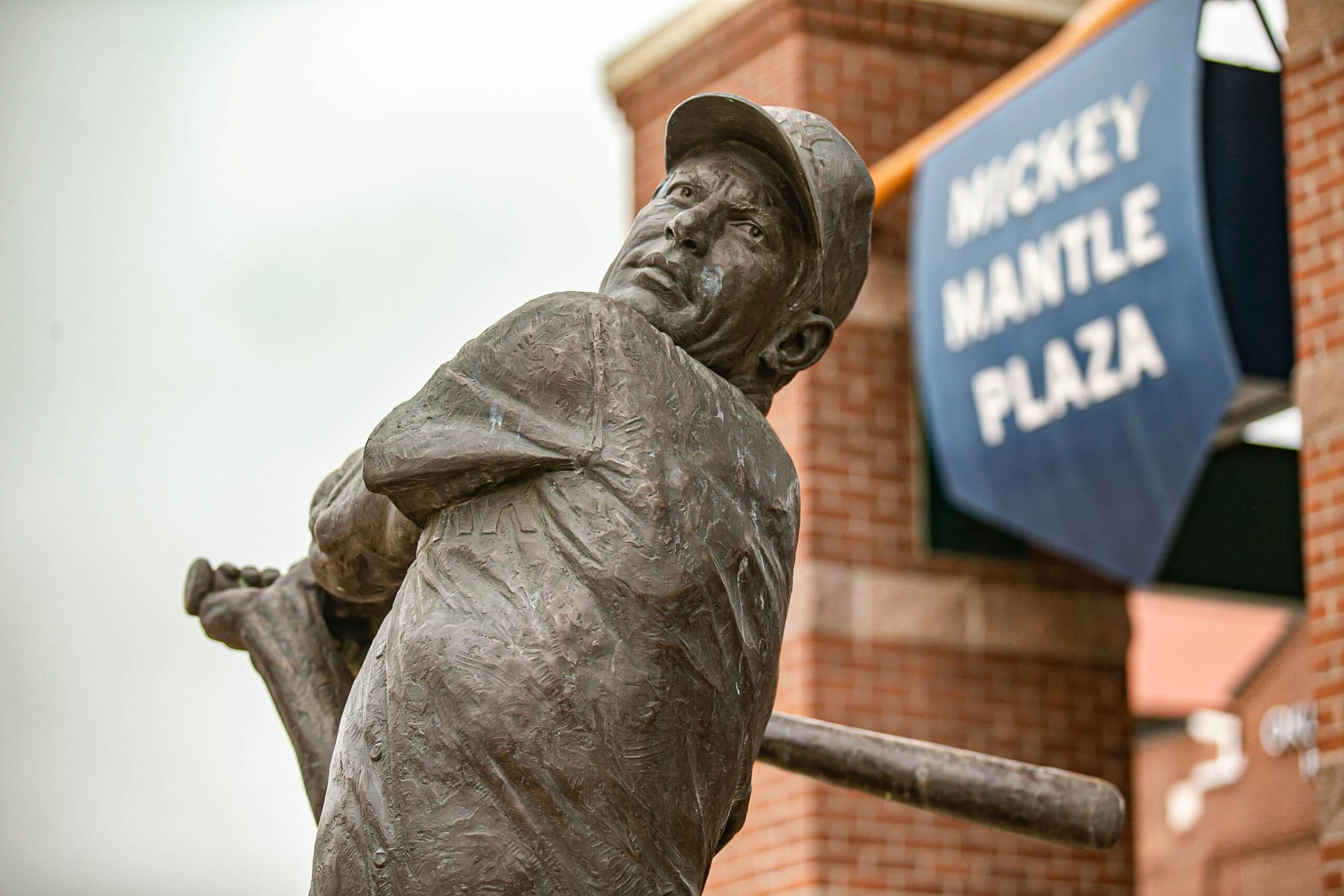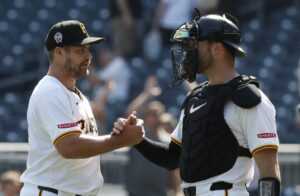Once again, this time in 1952, the Brooklyn Dodgers broke their fans’ hearts, and the New York Yankees were culpable. The Dodgers had previously lost the World Series to the rival Yankees in 1941, 1947, and 1949. It was known as a fierce rivalry. Then again, there’s the old saying that where one team dominates, it’s not a true rivalry. Regardless, the rivalry has produced many great moments.
1952 World Series: Dodgers, Yankees, Loes, Too Much Spit, Low Shining Sun, And Sarge
For Brooklyn fans, nothing compared to 1950-52. In 1950 and 1951, the Dodgers lost the National League pennant on the season’s final day. Then came the 1952 World Series. The Dodgers took a three-games-to-two lead over the Yankees and returned home to Ebbets Field, needing to win only one of two to win the championship.
Zany And Flakey, Or A Professional?
Yankees manager Casey Stengel sent his best pitcher, 33-year-old right-hander Vic Raschi to the mound for Game 6. Raschi was 16-6 with a 2.78 ERA in 1952. He had won 21 games in each of the three previous years. Chuck Dressen, the Dodgers manager and a legend in his own mind, countered with his sad-eyed, 22-year-old “bonus baby” Billy Loes to clinch the 1952 World Series. In 1952, Loes, also a right-hander, was 13-8 with a 2.69 ERA. He was a genuine New York street kid who spoke with an obscenity-laden New York accent. The media described him as “zany” and “flakey.” Before the World Series, reporters asked him his opinion of the upcoming matchup. They quoted him as picking the Yankees in six games. When confronted by Dressen on the subject, Loes said he was misquoted. He’d actually picked the Yankees in seven.
Loes’ Dodgers teammate and fellow pitcher Carl Erskine defended him in a 1980 United Press International article. “I always had a feeling that underneath that brassy, New Yorkish exterior, Billy had a great sensitivity to his role as a Dodger pitcher,” said the articulate Erskine. “I think his reputation for being bizarre was fed by circumstances and that he didn’t actually relish the role he was cast in. . . Billy always had a complete grasp of what was going on and was entirely professional out there on the mound.”
“Too Much Spit”
When Loes went to the mound in the top of the seventh inning, he had a 1-0 lead courtesy of Duke Snider’s sixth-inning home run off Raschi. Loes promptly surrendered a home run to the Yankees’ Yogi Berra. Then things got weird. Gene Woodling bounced a single up the middle. With Irv Noren at bat, Loes stood on the pitching rubber as the ball mysteriously dropped from his hand and rolled off the mound. It was an automatic balk, sending Woodling to second base. After the game, Loes mumbled to a United Press reporter, “It never happened to me before – nothing like it. The ball completely got away from me. My hands weren’t sweaty.” But according to other accounts, Loes said, “Too much spit on it.”
“That Low Shining Sun”
It looked like Loes might escape the inning with just one Yankees run after he struck out Noren and got Billy Martin to pop out. He had only to retire Raschi, who hit .188 in 1952. Raschi hit a grounder back to the mound that deflected off Loes’ right knee and headed toward right field. By the time first baseman Gil Hodges cut it off, Raschi reached first base safely and Woodling scored to put the Yankees ahead, 2-1. After the game, Loes claimed to have lost Racshi’s grounder in the sun. “I might have had the [censored] thing if it wasn’t for that low, shining sun in my face!” he told the assembled media.
In that same 1980 UPI article, Loes defended himself. “Remember how the sun used to come over the top of the grandstand at Ebbets Field late in the game?” he asked. “Well, that’s what happened. It was an everyday occurrence and they made it sound like some kind of phenomenon.”
Snider and Mickey Mantle traded solo home runs, and the Yankees won 3-2. The Dodgers had another chance to take the 1952 Series the next day. Unfortunately for them, only Snider was hitting. His two home runs in Game 6 gave him four for the Series, tying Babe Ruth’s record. The Dodgers team, however, hit .215/.291/.322 for the entire Series. Hodges went hitless in the seven games. Les Biederman of the Pittsburgh Post-Gazette reported that Dressen said, “Somebody better start hitting around here besides Duke Snider or this is going to be a long winter.”
Game 7
Dressen turned to Joe Black to pitch Game 7. Black won the National League Rookie of the Year Award in 1952 when he went 15-4 and registered a 2.15 ERA for the Dodgers. He appeared in 56 games, of which only two were starts, and recorded 15 saves while leading the majors by finishing 41 games.
Stengel went with 35-year-old left-hander Eddie Lopat. Lopat was 10-5 with a 2.53 ERA in 1952. It was thought to be suicide to pitch a left-hander against the Dodgers, who were dominated by right-handed hitters, even more so in cozy Ebbets Field. But Stengel didn’t have much of a choice. He had big, hard-throwing Allie Reynolds scheduled to pitch in Game 7. However, he’d brought in Reynolds to save Game 6.
Stengel got three scoreless innings from Lopat. When the Dodgers loaded the bases on three consecutive singles in the fourth inning, Stengel turned to Reynolds. Reynolds pitched out of trouble, allowing only one run. As the bottom of the seventh rolled around, the Yankees had a 4-2 lead. This was the crucial half-inning of the game. Raschi began the inning in relief of Reynolds, but he was wild. After two walks, a single, and an out, the Dodgers had loaded the bases.
Enter “Sarge”
With left-handed-swinging Snider due up, Stengel summoned left-handed pitcher Bob Kuzava from the bullpen. Nicknamed “Sarge,” Kuzava was the epitome of a journeyman. The Yankees were his fourth team. (He would pitch for four more.) In 1952, starting and relieving, Kuzava was 8-8 with a 3.45 ERA. Stengel hadn’t yet seen fit to use Kuzava in the Series. But Stengel knew that when both were in the minor leagues, Snider had little success against Kuzava. Now Snider and Kuzava battled to a full count until Snider popped out to third base.
With the right-handed Jackie Robinson due up, everybody expected Stengel to go back to the bullpen. Instead, he stayed with Kuzava. Brooklyn fans in attendance were licking their chops. Explaining the decision in The Era by Roger Kahn, Stengel said, “The reason I left him in is the other man [Robinson] has not seen hard-throwing left-hand pitchers much [just 90 times in 1952] and could have trouble with the break of a left-hander’s hard curve, which is what happened.”
With a 2-2 count (some accounts say it was 3-2; they’re wrong), Robinson hit a high pop near the mound. It was first baseman Joe Collins’ play to make, but he lost it in the sun. Second baseman Martin quickly realized what was happening and sprinted at the suddenly wind-blown ball, catching it at his shoe tops, ending the threat and saving at least one run.
Stengel hollered at Collins, “Wake up out there!” At least it wasn’t a grounder that Collins lost.
The Last Word
The seventh inning was the ball game. Throwing at two speeds – hard and harder – Kuzava went through the Dodgers lineup, allowing only one runner, who reached on an error. Losing the 1952 World Series to Kuzava was the ultimate insult to the Dodgers and their fans. They would have to wait until 1955 to get their revenge. Until then, they’d be haunted by the memory of the grounder lost in the sun and a journeyman left-handed relief pitcher.
Main Photo Credits: Nathan J Fish/The Oklahoman / USA TODAY NETWORK






